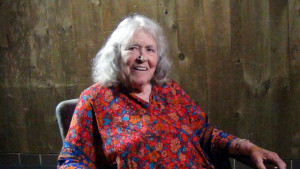
Patricia Barbanell was a 20-year-old Brandeis University student when she heard about Freedom Summer. Lacking parental permission, she waited until she turned 21 before leaving for Mississippi. After nonviolence training, Pat went to Columbus, Mississippi, where she lived with an older Black woman and taught in a Freedom School. Her students, having no access to language instruction in segregated schools, asked to learn French. Impressed by their passion for learning, Pat, taught French despite her protest that she had been “the worst French student in creation.” Additionally, with others, Pat went door to door encouraging people to register to vote.
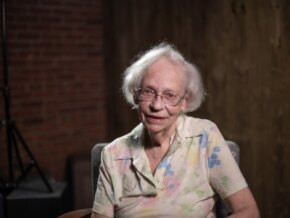 Susan Butler drove from New York City to Washington, D.C. with five other women to join the March on Washington. Inspired by Martin Luther King’s words and James Baldwin’s writing, the following year she volunteered for the Mississippi Freedom Summer project. In 1965, Susan journeyed to Selma, Alabama, where she demonstrated for voting rights. Following Dr. King’s assassination, she flew to Memphis for a silent memorial march led by his widow, Coretta Scott King. A retired teacher of the deaf, Susan now lives in Chestertown, New York.
Susan Butler drove from New York City to Washington, D.C. with five other women to join the March on Washington. Inspired by Martin Luther King’s words and James Baldwin’s writing, the following year she volunteered for the Mississippi Freedom Summer project. In 1965, Susan journeyed to Selma, Alabama, where she demonstrated for voting rights. Following Dr. King’s assassination, she flew to Memphis for a silent memorial march led by his widow, Coretta Scott King. A retired teacher of the deaf, Susan now lives in Chestertown, New York.
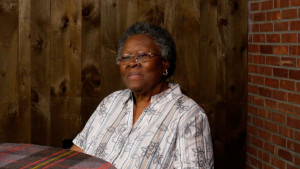 Andreesa Coleman is one of nine children, seven sisters and two brothers, in the close-knit Thompson family of Meridian, Mississippi. In the summer of 1964, she attended the Meridian Freedom School where she was taught by Luke Kabat. “The volunteers were the first white people we ever met who would interact with you,” she reminisced. She has vivid memories of the day Luke brought a cow’s heart to class to demonstrate how it circulated blood to the body. When she moved to Albany, Andreesa worked as a daycare teacher and then a health therapist at the Capital District Psychiatric Center.
Andreesa Coleman is one of nine children, seven sisters and two brothers, in the close-knit Thompson family of Meridian, Mississippi. In the summer of 1964, she attended the Meridian Freedom School where she was taught by Luke Kabat. “The volunteers were the first white people we ever met who would interact with you,” she reminisced. She has vivid memories of the day Luke brought a cow’s heart to class to demonstrate how it circulated blood to the body. When she moved to Albany, Andreesa worked as a daycare teacher and then a health therapist at the Capital District Psychiatric Center.
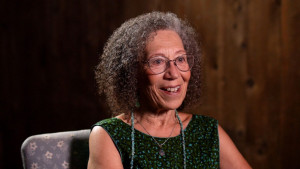 Miki Conn grew up in Delmar, NY. She and her sister, Fern, were the only Black students in the Bethlehem school system. She attended Howard University and joined the campus civil rights organization--the Nonviolent Action Group (NAG). Miki traveled with protestors to Cambridge, Maryland, where she was arrested outside a restaurant that refused to serve Black people. After college, Miki lived and worked in Kenya. She later settled in Schenectady where she directed the Hamilton Hill Arts Center. Miki organizes Schenectady’s Juneteenth celebration, and the annual Kwanzaa Celebrations. She is a published poet and author of three children’s books.
Miki Conn grew up in Delmar, NY. She and her sister, Fern, were the only Black students in the Bethlehem school system. She attended Howard University and joined the campus civil rights organization--the Nonviolent Action Group (NAG). Miki traveled with protestors to Cambridge, Maryland, where she was arrested outside a restaurant that refused to serve Black people. After college, Miki lived and worked in Kenya. She later settled in Schenectady where she directed the Hamilton Hill Arts Center. Miki organizes Schenectady’s Juneteenth celebration, and the annual Kwanzaa Celebrations. She is a published poet and author of three children’s books.
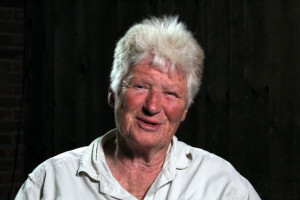 Judith Fetterley, a Swarthmore College graduate, went to work for the American Friends Service Committee in 1961. The Civil Rights Movement was gaining momentum. Much of her job involved working with Boston area college students to support civil rights activism in the South and also in the
Judith Fetterley, a Swarthmore College graduate, went to work for the American Friends Service Committee in 1961. The Civil Rights Movement was gaining momentum. Much of her job involved working with Boston area college students to support civil rights activism in the South and also in the
North. In summer 1962 she joined an AFSC voter registration project in Jackson, Tennessee, prior to beginning graduate work in English. She and other white volunteers worked with Black students encouraging local residents to become registered voters. Later Judith obtained her Ph.D. and became a Distinguished Teaching Professor at the University at Albany.
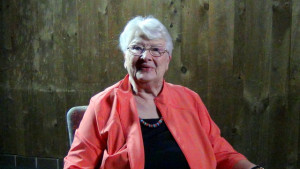 Jeanette Gottlieb attended the University of North Carolina Women’s College of in Greensboro. In 1961 four Black students from North Carolina A and T sat in at the Greensboro Woolworth’s store. Other Black students from A and T and some white students from the Women’s College joined the sit-ins. Jeanette did not sit in because she had promised her father she would not get arrested. She supported the sit-ins in other ways such as taking notes for fellow students who were protesting or raising funds. Eventually, she and a Black friend helped desegregate a Greensboro movie theatre.
Jeanette Gottlieb attended the University of North Carolina Women’s College of in Greensboro. In 1961 four Black students from North Carolina A and T sat in at the Greensboro Woolworth’s store. Other Black students from A and T and some white students from the Women’s College joined the sit-ins. Jeanette did not sit in because she had promised her father she would not get arrested. She supported the sit-ins in other ways such as taking notes for fellow students who were protesting or raising funds. Eventually, she and a Black friend helped desegregate a Greensboro movie theatre.
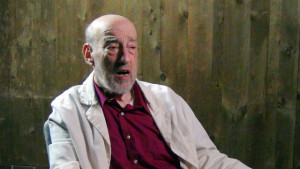 Stephen Gottlieb wrote a prize-winning essay on brotherhood as a Midwood High School student in Brooklyn. He graduated from Princeton University and Yale Law School, participated in the 1963 March on Washington, volunteered full-time at the NAACP headquarters in New York, and did the legal work to block construction of a highway through the middle of the Black community in St. Louis. As a professor at Albany Law School, he taught constitutional and civil rights law, served on the New York Advisory Committee to the U.S. Civil Rights Commission, and regularly comments on public issues for WAMC public radio.
Stephen Gottlieb wrote a prize-winning essay on brotherhood as a Midwood High School student in Brooklyn. He graduated from Princeton University and Yale Law School, participated in the 1963 March on Washington, volunteered full-time at the NAACP headquarters in New York, and did the legal work to block construction of a highway through the middle of the Black community in St. Louis. As a professor at Albany Law School, he taught constitutional and civil rights law, served on the New York Advisory Committee to the U.S. Civil Rights Commission, and regularly comments on public issues for WAMC public radio.
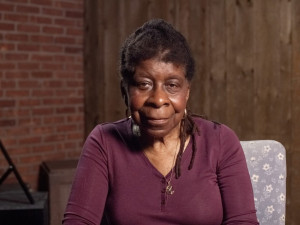 Alice Green grew up as one of a few Black residents in the Adirondack town of Witherbee. As a teen she applied for a summer job at a resort, but when she learned she would be housed in inferior quarters, separate from the white employees, she quit that job. This launched her lifelong fight against racial discrimination. Alice has organized to combat racism in prisons, police abuse of Black citizens, and
Alice Green grew up as one of a few Black residents in the Adirondack town of Witherbee. As a teen she applied for a summer job at a resort, but when she learned she would be housed in inferior quarters, separate from the white employees, she quit that job. This launched her lifelong fight against racial discrimination. Alice has organized to combat racism in prisons, police abuse of Black citizens, and
discrimination in education, housing, and political representation. As the head of Albany’s Center for Law and Justice, she is a tireless campaigner for racial justice.
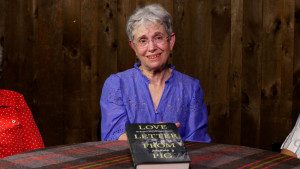 Julie Kabat participated vicariously in the events of Freedom Summer through letters from her brother Lucien “Luke” Kabat who taught Freedom School students in Meridian, Mississippi. Luke was a medical student at Stanford University who died in 1966. In 2023 the University Press of Mississippi published Love Letter from Pig, Julie’s affectionate memoir about Luke and his experiences as a civil rights worker. Julie has toured internationally as a composer, singer, performer, and storyteller. She worked for over forty years as a teaching artist in public schools.
Julie Kabat participated vicariously in the events of Freedom Summer through letters from her brother Lucien “Luke” Kabat who taught Freedom School students in Meridian, Mississippi. Luke was a medical student at Stanford University who died in 1966. In 2023 the University Press of Mississippi published Love Letter from Pig, Julie’s affectionate memoir about Luke and his experiences as a civil rights worker. Julie has toured internationally as a composer, singer, performer, and storyteller. She worked for over forty years as a teaching artist in public schools.
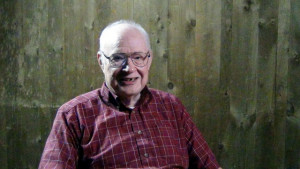 Bill Leue was a student at the University at Albany when he learned about the 1965 Summer Community Organizing and Political Education (SCOPE) project organized by the Southern Christian Leadership Conference. He helped raise funds to support the program and was one of two Albany students who
Bill Leue was a student at the University at Albany when he learned about the 1965 Summer Community Organizing and Political Education (SCOPE) project organized by the Southern Christian Leadership Conference. He helped raise funds to support the program and was one of two Albany students who
went south to work on voter registration. After orientation, he was assigned to work in Allendale County, South Carolina. Student volunteers went door to door encouraging Black residents to register. They also demonstrated for increased registration hours. Passage of the Voting Rights Act that summer guaranteed the success of their efforts.
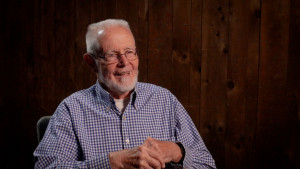 Paul Murray marched with Martin Luther King in the 1963 Detroit “Walk to Freedom.” As a member of the University of Detroit Human Relations Club, he spoke to high school students about civil rights. He spent the summer of 1966 working with the American Friends Service Committee in Madison County, Mississippi. After earning his Ph.D. in Sociology, he taught at Millsaps College in Mississippi and Siena College. The author of numerous scholarly articles on Catholic participation in the Civil Rights Movement, he also wrote Seeing Jesus in the Eyes of the Oppressed, a book about Franciscans working for social justice.
Paul Murray marched with Martin Luther King in the 1963 Detroit “Walk to Freedom.” As a member of the University of Detroit Human Relations Club, he spoke to high school students about civil rights. He spent the summer of 1966 working with the American Friends Service Committee in Madison County, Mississippi. After earning his Ph.D. in Sociology, he taught at Millsaps College in Mississippi and Siena College. The author of numerous scholarly articles on Catholic participation in the Civil Rights Movement, he also wrote Seeing Jesus in the Eyes of the Oppressed, a book about Franciscans working for social justice.
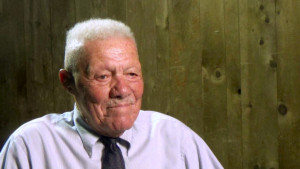 Jim Owens, the oldest of eleven children, grew up in Wilmington, Delaware. After graduating from St.Joseph’s elementary school, he wanted to continue his education at a Catholic high school, but Wilmington’s high schools were segregated. Instead, he commuted by train to Philadelphia to attend Southeast Catholic High School. In November 1950, Father Thomas Lawless, principal of Salesianum School, invited Jim and four other young Black men to attend Salesianum. Thus, he became one of the first Black students in the state of Delaware to attend classes with white students four years before the Brown v. Board of Education decision.
Jim Owens, the oldest of eleven children, grew up in Wilmington, Delaware. After graduating from St.Joseph’s elementary school, he wanted to continue his education at a Catholic high school, but Wilmington’s high schools were segregated. Instead, he commuted by train to Philadelphia to attend Southeast Catholic High School. In November 1950, Father Thomas Lawless, principal of Salesianum School, invited Jim and four other young Black men to attend Salesianum. Thus, he became one of the first Black students in the state of Delaware to attend classes with white students four years before the Brown v. Board of Education decision.
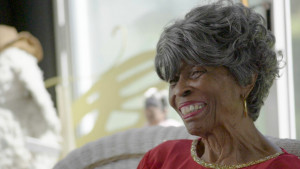 Anne Pope was raised in Shubuta, Mississippi, a town that was the site of several lynchings from the infamous “Hanging Bridge.” Shubuta was segregated, but Anne grew up protected by family, teachers, and members of her Baptist church. As a young woman she moved to Albany. Black people could vote in Albany, she learned, but they were paid five dollars to vote for Democratic candidates. Anne was a leader in the NAACP, serving as head of the local chapter for several years. She always stressed the importance of voting. “Your vote is your voice,” she insisted.
Anne Pope was raised in Shubuta, Mississippi, a town that was the site of several lynchings from the infamous “Hanging Bridge.” Shubuta was segregated, but Anne grew up protected by family, teachers, and members of her Baptist church. As a young woman she moved to Albany. Black people could vote in Albany, she learned, but they were paid five dollars to vote for Democratic candidates. Anne was a leader in the NAACP, serving as head of the local chapter for several years. She always stressed the importance of voting. “Your vote is your voice,” she insisted.
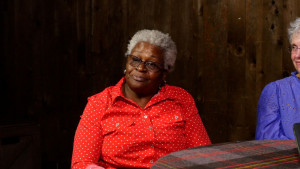 Dorothy Singletary is Andressa Coleman’s younger sister. She tagged along with Andressa to the community center where Luke Kabat taught in the summer of 1964. “The volunteers were different (than white people in Meridian),” she remembered. “They would actually play with you and not call you names.” Luke helped her read aloud. “He told me to slow down, slow down. I was stumbling because I went too fast.” Dorothy later moved to Albany where she worked for many years as a day care and Head Start teacher.
Dorothy Singletary is Andressa Coleman’s younger sister. She tagged along with Andressa to the community center where Luke Kabat taught in the summer of 1964. “The volunteers were different (than white people in Meridian),” she remembered. “They would actually play with you and not call you names.” Luke helped her read aloud. “He told me to slow down, slow down. I was stumbling because I went too fast.” Dorothy later moved to Albany where she worked for many years as a day care and Head Start teacher.
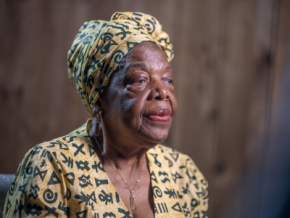 Nell Stokes, was raised in Montgomery, Alabama, where she experienced poverty, segregation, and discrimination. In 1956, as a teenager, she visited the cab company that provided rides for Black Montgomery residents boycotting the city’s buses. She offered to help in the company’s office, doing chores and running errands for those coordinating transportation. Some years later, she moved to Albany with her husband and four small children. Since then, she has been active in civic and religious organizations, receiving numerous awards for her contributions.
Nell Stokes, was raised in Montgomery, Alabama, where she experienced poverty, segregation, and discrimination. In 1956, as a teenager, she visited the cab company that provided rides for Black Montgomery residents boycotting the city’s buses. She offered to help in the company’s office, doing chores and running errands for those coordinating transportation. Some years later, she moved to Albany with her husband and four small children. Since then, she has been active in civic and religious organizations, receiving numerous awards for her contributions.